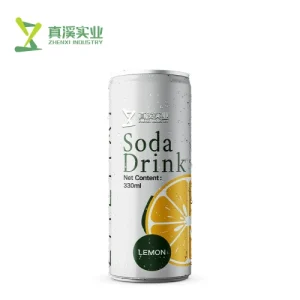Many factors determine which is best between beverage cans and bottles including the environmental impact of each, cost, consumer convenience & product preservation. Differentiating between the two assists in evaluating when one packaging option is preferable vs another.
Coca-Cola beverage cans may be among the most environmentally friendly. Recycle Your AluminumCan2 via Japan Aluminium Association Alumnum cans are 100% recyclable and can be repeatedly...medium.com Source: The Aluminum Association, Inc. In the U.S., 50.4% of aluminum beverage cans were recycled in 2019 and it was even higher percentage in Europe, standing at 74.5%. Well, recycling aluminum reduces use of raw materials by almost 95%, thus reducing greenhouse gas emissions and the energy consumed to produce new products from that material.
Glass bottles - Recyclable, but not as effective when recycled. Creating new glass requires more energy and a much higher environmental impact compared to recycling aluminum. A 2018 study by the Waste and Resources Action Programme (WRAP) discovered teenage recycling glass saves only about 30% of the energy in comparison with new glass production. Moreover, broken glass can also pollute recycling streams and lower the efficacy of a given procedure.
Also, another imperative factor is costs of these. Aluminum cans are often cheaper to produce and ship because they weigh less. Ball Corporation says an aluminum can weighs about 14-15 grams, compared to a standard 12 ounce glass bottle which typically weights around between180 and200 grams. With this lighter weight the cans cost less for manufacturers to transport, a savings that ultimately gets passed on to consumers at the checkout register.

Convenience for the consumer also has an impact, as cans are favored over bottles because of their ease. As an agricultural product, cans are also less intricate and more rugged than glass containers they do not break as easily; these characteristics of beer-in-a-can make it a good choice for outdoor activities such as boating or fishing. Did we mention that aluminum bottles cool down faster than glass, too? Perfect for an impromptu ice-colddrink. In a poll conducted by Mintel, 60 percent of consumers said they like cans for their ability to go anywhere and easy-to-handle convenience.
Cans also provide better insulation as far as preserving the product where light and oxygen (which can hurt drinks like does beer and soda) is concerned. Without any equator exposure, aluminum cans shield everything from daylight and its harmful impact to the contents inside it imploring limited air as a consequence of oxygen (a ruthless murderer) to enter into this hermetically sealed drum; Guardian Angel Against Stale Beerismet preserving liquid spoilage later. According to a study published in the Journal of the American Society of Brewing Chemists, beer placed into cans will hold onto its quality over time better than when stored in glass bottles
On the other hand, glass bottles have some benefits as well. They are generally seen as higher-end and can improve the experience of drinking certain beverages-like wine or special types of beer,-as a result. As such, in some markets the touch and look of glass suggest a higher quality product amongst consumers.
Increased consumer demand for cans is noted as highlighted by sustainability efforts being made industry wide within beverage companies Coca-Cola, for example, has set a goal of recycling one bottle or can for every one it sells by 2030 under its "World Without Waste" campaign. In so doing, the packaging industry commitment to sustainability is highlighted.
The age of waste, and recycling Sir David Attenborough talks to people in their twenties about what could have been done differently. This mindset is in part why we are now seeing aluminum cans become more popular as a sustainable packaging material.
In summary, while both packaging and containers have their strengths and uniqueness beer cans made of aluminum obviously possess distinct tangible benefits including high recyclable traits with more cost-effective on markets consumer-friendly easy use preservation alcohol. These properties combined with the growing shift towards environmentally-friendly, sustainable packaging solutions and ongoing advancements in can manufacturing processes means that Beverage cans remain an attractive option for a large number of different beverages.